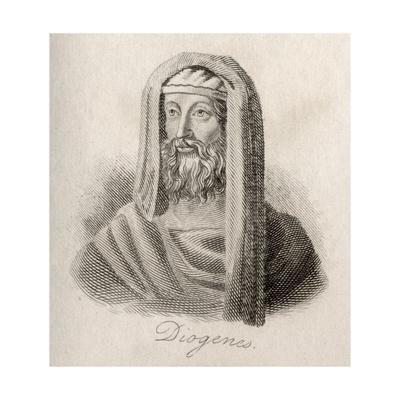

The man, thinking he had been insulted, threw the fish away and departed. Although Antisthenes threatened him with his staff, Diogenes was obstinate, he wanted to be his student, he shouted, “Strike, for you’ll not find wood hard enough to keep me away from you, as long as I think you have something to say.” Diogenes was just as contrary, when a young fellow wanted to study under him, “he gave him a fish and told him to follow him. ĭIOGENES OF SINOPE, LIVING IN A TUB IN THE SQUAREĭiogenes was an exile in Athens who wanted to study under Antisthenes. Virtue is a weapon that cannot be taken from you. Virtue is a matter of deeds and needs no abundance of words or learning.” The wise man needs only the law of virtue to govern his behavior, he does not need written laws. Virtue is all that is needed for happiness, “since it needs nothing but the strength of Socrates. “When asked what advantage he enjoyed from philosophy, he said, ‘To be able to live in company with oneself.’ “Īntisthenes sought to prove that virtue could be taught, that to be virtuous is to be noble. “Reproached one day for associating with worthless men, he said, ‘Doctors associate with patients without falling into a fever themselves.’ “ One saying reminds us of what Jesus once said. “Pay attention to your enemies, for they are the first to notice your faults.” kolakas), for you are devoured by crows when dead, but by flatterers when you are alive.” It would be better to fall in with crows than flatterers (in Greek, korokas vs. “You should learn from the knowledgeable that the faults you possess can be avoided.” “I would rather go mad than feel pleasure.” He was not concerned about the number of students who attended his lectures, sometimes he boasted he chased away unappreciative students with a silver staff.ĭiogenes Laertius records many of his pithy sayings: Once when a student asked what he should bring to his lectures, he replied, “A new book, a new pen, and a new tablet,” meaning he should bring with him an eagerness to learn. He emulated the impassivity of Socrates, he refused to allow base passions to rule his life. The Cynics believed that “virtue can be taught, and when acquired cannot be lost.” Īntisthenes, the first Cynic philosopher, walked five miles a day to listen to Socrates, finding inspiration in his simplicity and his hardiness, adopting his ascetic practices. The Cynics “lived frugally, eating only for nourishment, wearing only a clock, despising wealth, fame, and royal birth.” Some ate only vegetables, some drank only water, some lived in tubs in the marketplace, like Diogenes of Sinope.

#DIOGENES OF SINOPE WEIRD STUFF HOW TO#
They had no interest in general education or literature, their only concern was how to live a life of virtue. But his preference in describing the philosophy by means of the pithy sayings and quick stories about the philosophers is well suited to drawing a picture of the Cynics.Ĭlarification: Diogenes Laertius compiled the book, “Lives of Eminent Philosophers,” and the most influential and interesting Cynic philosopher in the Lives is also named Diogenes, or Diogenes of Sinope.ĭiogenes Laertius tells us the Cynics were only interested in ethics, and unlike the other philosophical schools, they had no interest in logic and physics, much like the later Roman Stoics. Like the Greek Stoic philosophers, none of the complete works of the Cynics were copied by the medieval scribes or otherwise preserved, most of what we know about the Cynics are in their chapter in the “Lives of the Eminent Philosophers” by our friend Diogenes Laertius, which means we are only told what he thought was interesting.

The Cynics were always questioning the norms of their day. Athens was the Berkeley of the ancient world, that the Cynics were contrarians, like our sixties flower children, minus the drugs, but with the same disregard for material success and authority figures. Scholar and Stoics alike wish that at least some of the intact works of the Greek Cynic and Greek Stoic philosophers, but the summaries of Diogenes Laertius, sometimes revealing, sometimes shallow, always cursory, is pretty much all that has survived, except when Seneca and the later Stoics repeat their ideas. Please view our YouTube video on this topic: We can say that Greek Stoic philosophy was heavily influenced by the Cynics, as Zeno first studied under the Cynic Crates. We should let the Cynic philosophers define their own terms and not be distracted by our own modern cynicism. We should avoid the temptation to rush to google what the word “cynicism” means, for there is no good parallel to anything in either our modern culture or to our historical medieval culture. Who were the Cynic Philosophers? What was the philosophy of the Cynics?


 0 kommentar(er)
0 kommentar(er)
